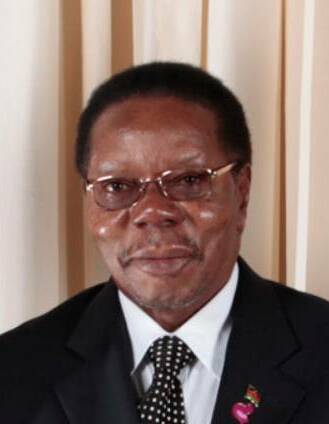
Bingu wa Mutharika
Bingu wa Mutharika was a Malawian politician and economist who served as the President of Malawi from 2004 until his death in 2012. He was known for his emphasis on tangible development and often stated, 'Let the work of my hands speak for me,' advocating for action over rhetoric in governance. Mutharika's leadership style is often contrasted with current political figures, highlighting the significance of delivering real results to gain public trust and support.
Born on Feb 24, 1934 (91 years old)
Global Media Ratings
Countries Mentioned
| Country | Mentions | Sentiment | Dominance | + Persistence | x Population | = Reach | x GDP (millions) | = Power |
|---|---|---|---|---|---|---|---|---|
| Malawi | 2 | 3.50 | 1.17% | +10% | 19,129,952 | 246,116 | $7,700 | 99$ |
| Totals | 2 | 19,129,952 | 246,116 | $7,700 | 99$ |
Interactive World Map
Each country's color is based on "Mentions" from the table above.
Recent Mentions
 Malawi:
Bingu wa Mutharika was known for his authoritarian style and for marginalizing his Vice Presidents.
3
Malawi:
Bingu wa Mutharika was known for his authoritarian style and for marginalizing his Vice Presidents.
3
 Malawi:
Joyce Banda was sidelined and expelled for refusing to endorse Bingu wa Mutharika’s succession plans.
4
Malawi:
Joyce Banda was sidelined and expelled for refusing to endorse Bingu wa Mutharika’s succession plans.
4
 Malawi:
Under the late Bingu wa Mutharika, the party championed amendments that elevated MPs above councillors.
5
Malawi:
Under the late Bingu wa Mutharika, the party championed amendments that elevated MPs above councillors.
5
 Malawi:
The legacy of the late President Bingu wa Mutharika — an undisputed economic visionary — reminds us of Malawi’s potential when leadership is focused on progress.
7
Malawi:
The legacy of the late President Bingu wa Mutharika — an undisputed economic visionary — reminds us of Malawi’s potential when leadership is focused on progress.
7
 Malawi:
Under President Bingu wa Mutharika, Malawi’s fuel story hit its darkest chapter.
3
Malawi:
Under President Bingu wa Mutharika, Malawi’s fuel story hit its darkest chapter.
3
 Malawi:
Bingu wa Mutharika was the handpicked successor of Bakili Muluzi who was sworn in in 2004.
5
Malawi:
Bingu wa Mutharika was the handpicked successor of Bakili Muluzi who was sworn in in 2004.
5
 Kenya:
Bingu wa Mutharika was Peter Mutharika's brother and former president of Malawi.
6
Kenya:
Bingu wa Mutharika was Peter Mutharika's brother and former president of Malawi.
6
 Malawi:
In 2004, Muluzi handed power to the late Bingu wa Mutharika after serving his constitutionally mandated two terms.
5
Malawi:
In 2004, Muluzi handed power to the late Bingu wa Mutharika after serving his constitutionally mandated two terms.
5
 South Africa:
When Bingu died in office, Peter stepped fully into the political arena.
5
South Africa:
When Bingu died in office, Peter stepped fully into the political arena.
5
 Malawi:
Soko pointed out that Bingu wa Mutharika in 2014 refused to accept defeat.
3
Malawi:
Soko pointed out that Bingu wa Mutharika in 2014 refused to accept defeat.
3